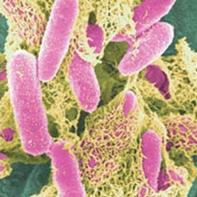Kansas State researching Salmonella and E.coli

A team of seven researchers and six collaborators at Kansas State University are embarking on studies on E. coli 0157 and Salmonella.
“It’s becoming more and more difficult to study these pathogens because you have to be a jack of all trades,” said T.G. Nagaraja, professor of diagnostic medicine pathobiology at K-State’s College of Veterinary Medicine.
Nagaraja leads a research group that includes epidemiologists, molecular biologists, production animal medicine experts and feedlot nutritionists.
For the past five years, Nagaraja has been leading the team on an E. coli 0157 research project supported by the US Department of Agriculture that goes back more than a decade at K-State.
On-farm intervention strategies
The research focuses primarily on dealing with the bacteria in cattle – however, the bacteria also can be found in pigs and poultry. “Our goals are fairly simple,” Nagaraja said. “We want to understand the ecology of E. coli 0157 in cattle and come up with practical, on-farm intervention strategies.”
Narayanan is also working to develop a rapid, molecular-based testing method for Salmonella that is more accessible. To find out the serotype of the Salmonella, veterinarians and researchers have to send samples to a laboratory in Iowa.
Resistance
The research team is studying antimicrobial resistance with the hopes of preventing foodborne pathogens from becoming more dangerous to humans and animals.
Nagaraja said that in the future the research team will pursue the goal of eliminating 0157 and Salmonella.
Related website:












